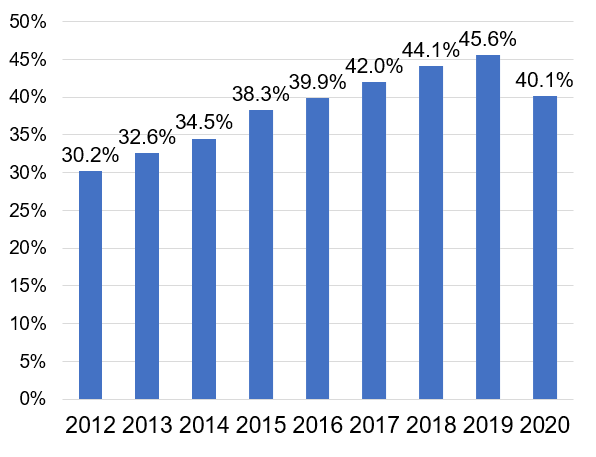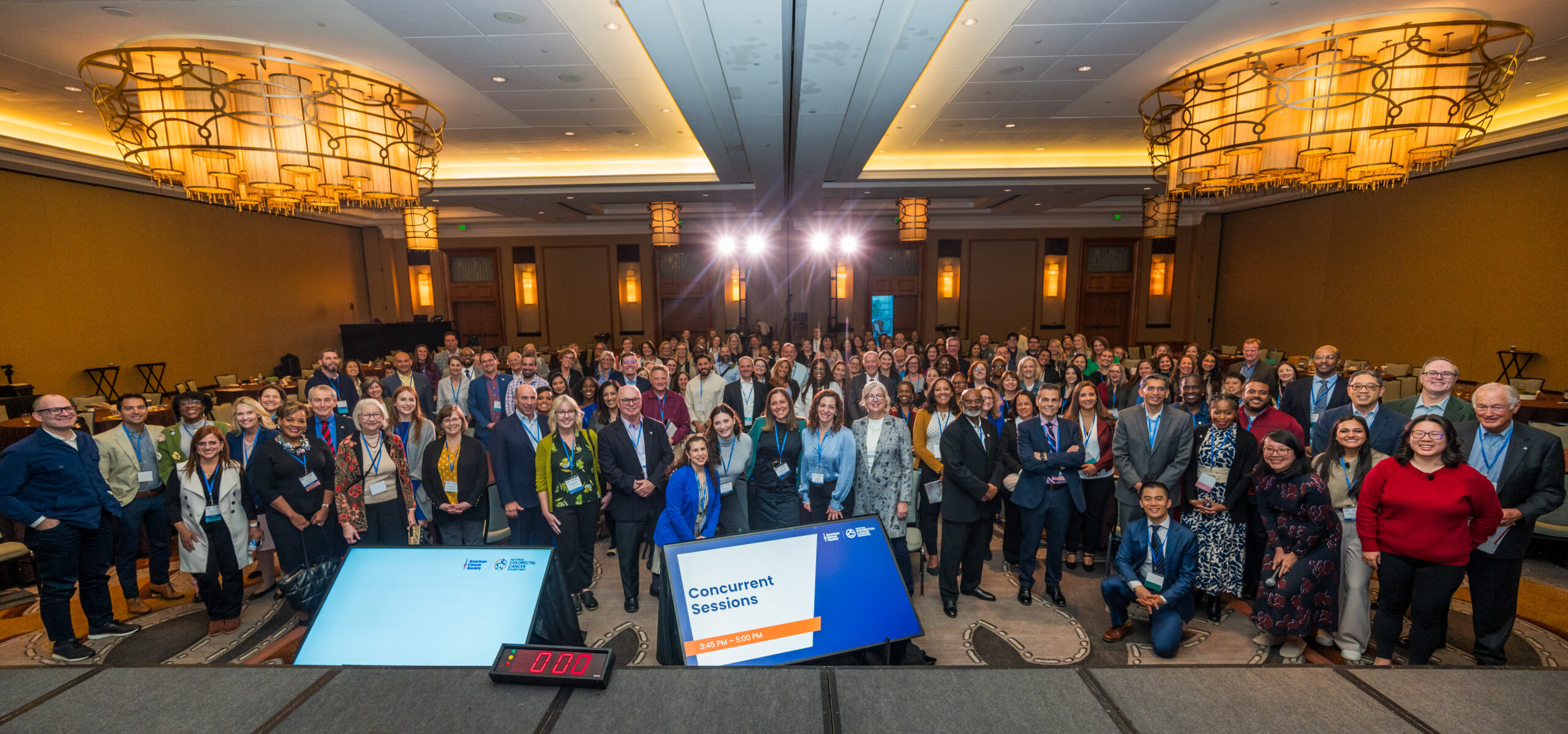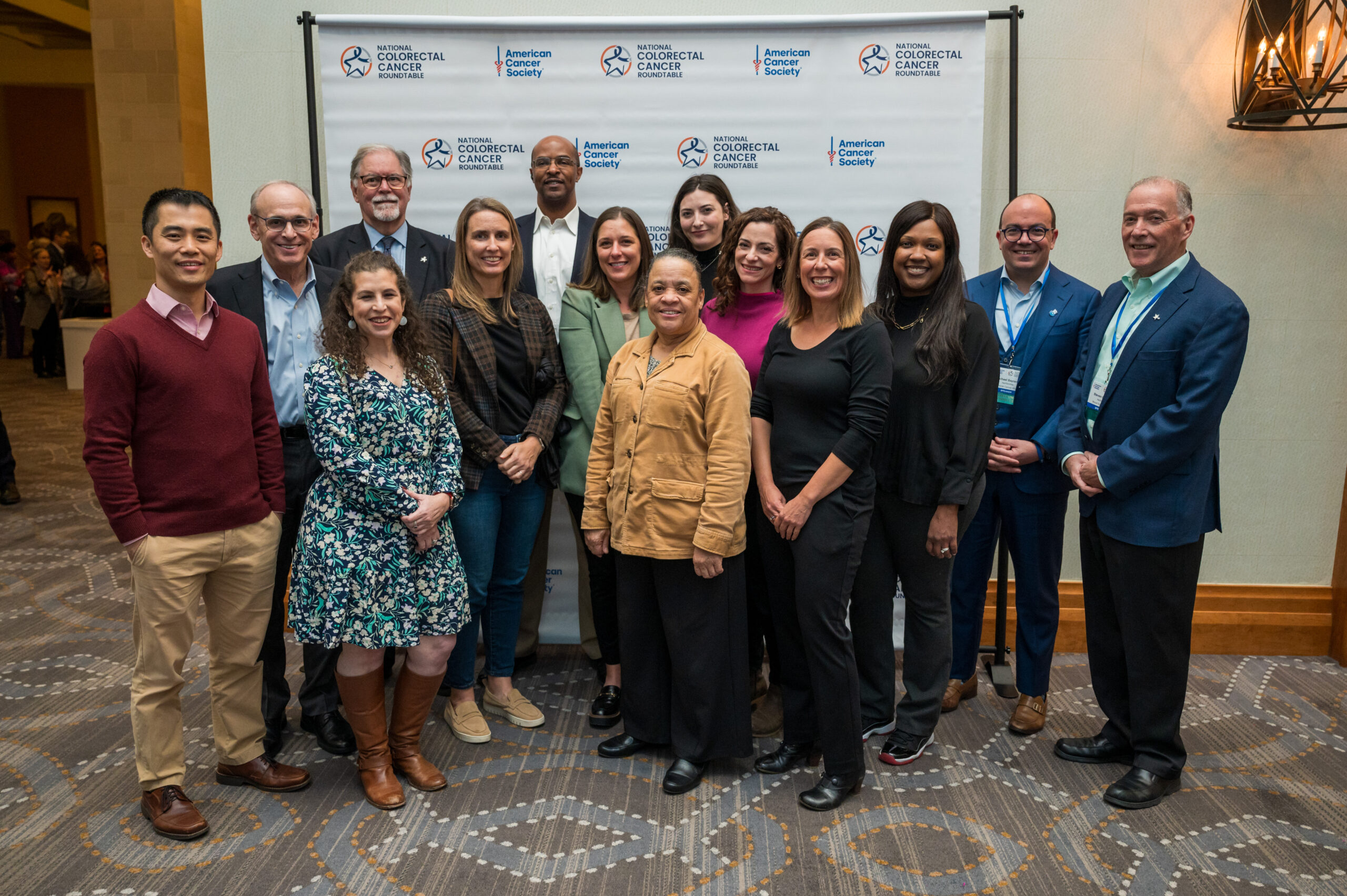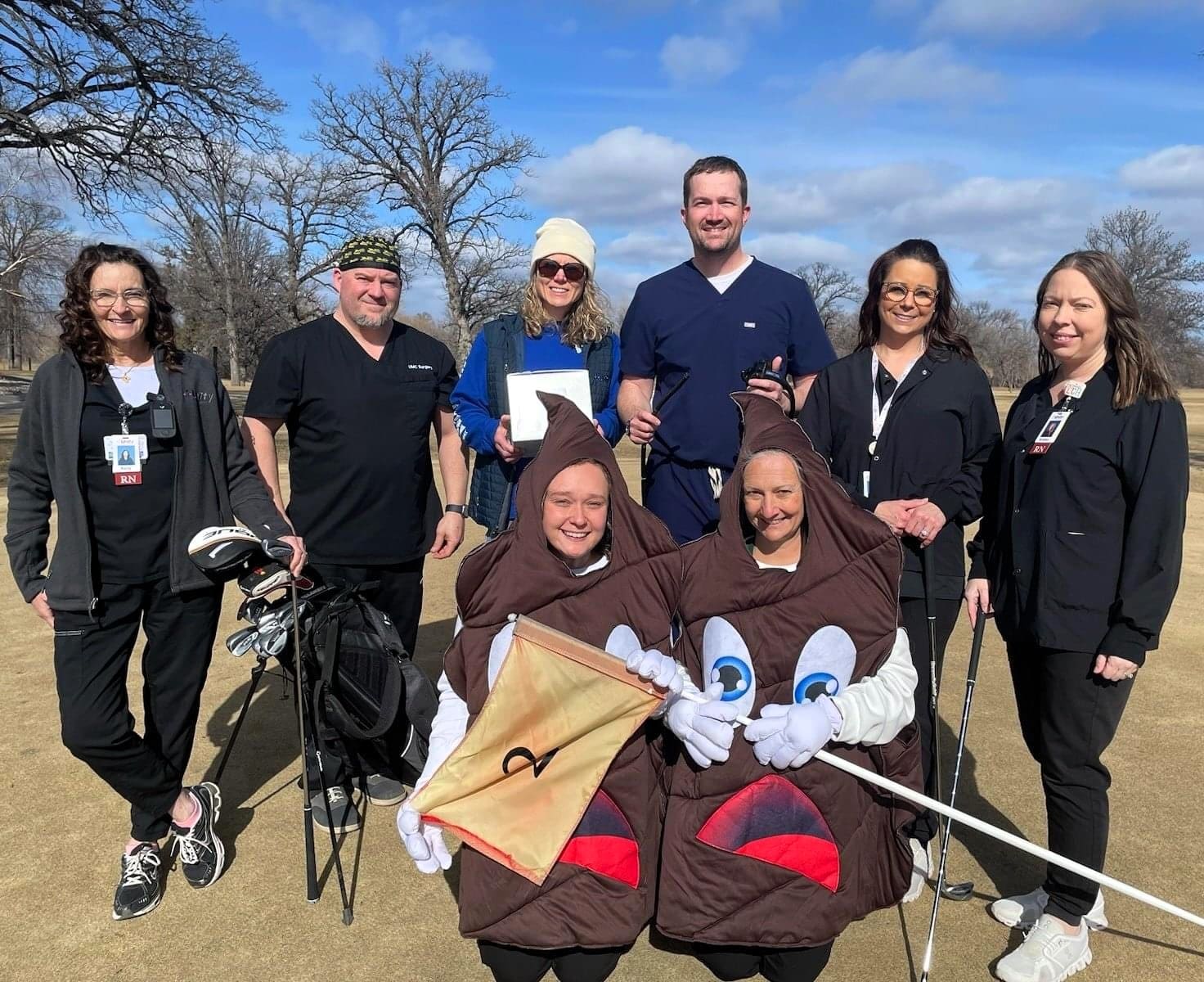CRC News: August 12, 2021

2020 UDS Data on CRC Screening in FQHCs Now Available
On Monday, the Health Resources and Services Administration (HRSA) released the 2020 UDS (Uniform Data System) data for national Health Center Program awardees (federally qualified health centers). HRSA reported an overall colorectal cancer screening rate of 40.1% in 2020, which demonstrates a 10-percentage point increase since HRSA began tracking colorectal cancer screening as a UDS measure in 2012. However, this rate is down from the 2019 rate of 45.6%, no doubt reflective of the myriad of challenges health centers faced and continue to face due to the COVID-19 pandemic starting in early 2020. Notably, despite these challenges, health centers screened 2,448,976 patients in 2020, close to the total number screened in 2018 (2,491,769).
The NCCRT would like to congratulate our partners at HRSA and the National Association for Community Health Centers (NACHC) for championing efforts to increase CRC screening among their grantee and member health centers partners. And most of all, we’d like to share a huge round of applause for the staff and providers at health centers for their persistence and innovation in working day in and day out to provide eligible patients with the opportunity to screen for this often preventable disease. Visit the HRSA website to learn more about the UDS measure and to find the UDS screening rate for health centers in your state. Visit NCCRT’s Data & Progress webpage to learn about our progress with other national measures.
Registration Open: Utilizing simulation modeling to inform cancer control responses to the COVID-19 pandemic
The American Cancer Society National Consortium to Improve Cancer Screening and Care will host a 90-minute webcast and discussion with leading investigators from the National Cancer Institute’s Cancer Intervention and Surveillance Modeling Network (CISNET) team to share the latest modeling findings on the impact of the pandemic on cancer screening/outcomes. Register to participate on August 18 from 12 to 1:30 PM ET for the session entitled, Utilizing simulation modeling to inform cancer control responses to the COVID-19 pandemic: What does the latest modeling research tell us about near- and long-term effects of the COVID-19 pandemic on cancer outcomes?
In June 2020, an editorial published in Science modeled the effects of the COVID-19 pandemic on cancer screening and treatment for breast and colorectal cancer, estimating nearly 10,000 excess deaths from those cancers in the next decade. Since then, simulation models have been updated with new data on cancer screening volumes during the COVID-19 pandemic. The latest modeling research can improve our understanding of the effects the pandemic may have on cancer screening, care, and mortality.
This webcast is free to attend and open to all.
Fight Colorectal Cancer Announces Grant Opportunity
Fight Colorectal Cancer (Fight CRC), an NCCRT member, announced the launch of the 2022-2023 application cycle for the Catalyst State-by-State Advocacy Program. The Catalyst Program provides funding along with technical assistance and support to coalitions working to advance state-level policy to increase access to colorectal cancer screening.
The application for the 2022-2023 grant cycle is open with all applications due at 11:59pm EST on August 20, 2021. Fight CRC is looking for applications from state coalitions, non-profit organizations (501(c)(3), 501(c)(4)), universities, and state governments who are currently working on policy to increase access to colorectal cancer screening or those who are looking to get involved in the work. Individuals not affiliated or supported by an entity listed above are not eligible for funding.
Key policy priorities include ensuring access to colorectal cancer screening beginning at age 45 (for those states where this is still relevant in light of updated USPSTF guidelines) and removing out-of-pocket costs for patients needing a colonoscopy following a positive non-invasive screening test. Other “big P” and “small p” policy solutions for increasing access to screening may also be considered.
Learn more about the Catalyst Program and apply by the deadline on August 20, 2021. Questions?
Contact Molly McDonnell, Director of Advocacy at Fight CRC, at [email protected].
We Highlight Successes, Leaders, Best Practices, And Tools That Are Making An Impact In The Nationwide Movement To Reach 80% Screened For Colorectal Cancer.
Do you have a suggestion for a future blog topic? We welcome you to share your suggestions by emailing [email protected].
Blog Policy
Opinions expressed in these blog posts are that of the author and do not represent policies of the National Colorectal Cancer Roundtable or the author’s institution.
Our staff moderate all comments on the 80% Blog. While we do not censor based on point of view, we will delete or edit comments that are offensive or off topic. Click here to view full version.
© 2025 American Cancer Society National Colorectal Cancer Roundtable. All rights reserved.


